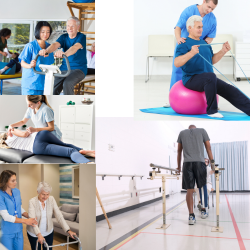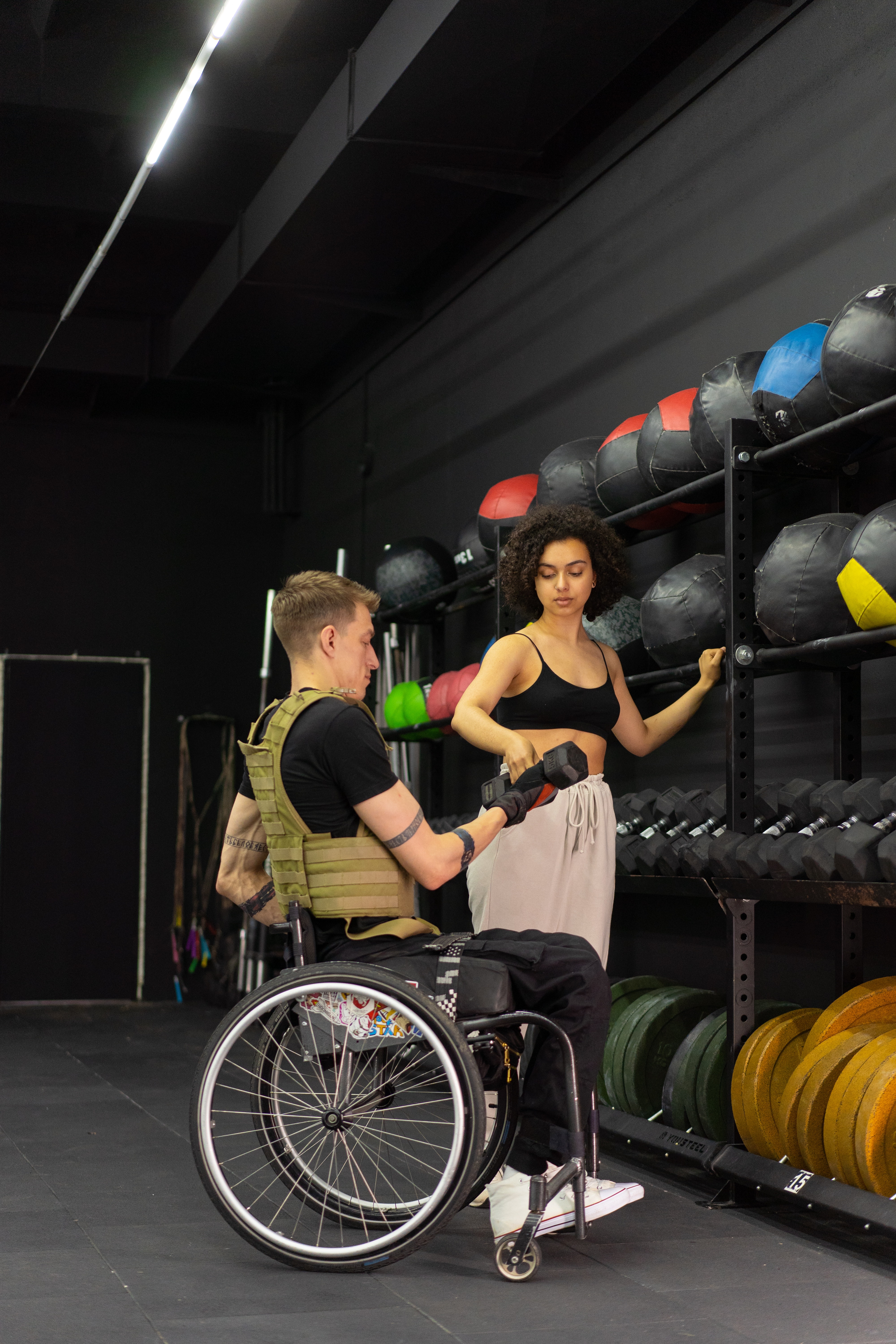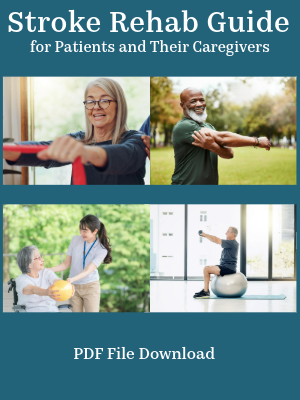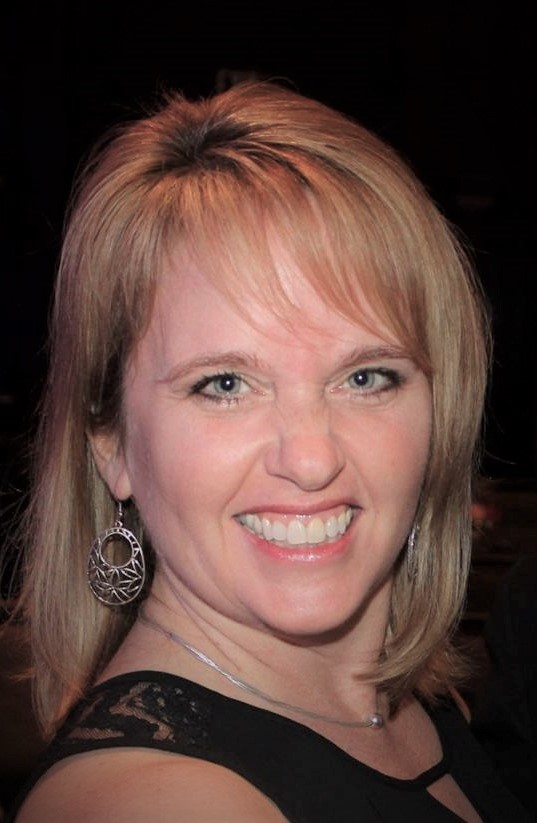Rehab Facilities

Finding the right rehab facilities and therapists is imperative to stroke recovery. Stroke often results in physical, cognitive, and emotional challenges, and the appropriate rehab facility should offer multidisciplinary care, with a team of professionals experienced in stroke rehabilitation who will provide tailored treatment plans. Rehab facilities will incorporate physical therapy, occupational therapy, speech therapy, and psychological support to address the unique needs of each individual. Access to advanced equipment and technology, along with a supportive and stimulating environment, can significantly enhance the recovery process. The right rehab facility ensures that stroke survivors receive comprehensive and personalized care, maximizing their chances of regaining independence, restoring functionality, and achieving optimal outcomes on their path to recovery.
What Rehabilitation Therapies are Available for Stroke?
Rehabilitation often consists of three main therapies which are physical, occupational, and speech therapy. Physical therapy helps a patient with balance, standing, walking, transitional movements and regaining strength. Occupational therapy helps a stroke victim regain their ability to perform activities of daily living (ADLs) such as feeding, grooming, bathing, toileting, and dressing. Occupational therapists also work to improve overall arm function and fine motor skills so survivors are able to perform their ADLs. Speech therapy focuses on improving speech, swallowing and cognitive deficits. For more information about the specific types of exercises provided during therapy, please visit the stroke rehab exercises page.
Which Type of Facilites are Best?
There are several types of facilities that offer stroke rehab. Initially, a patient will be in an acute hospital and may receive a few days of therapy while there. Once discharged from the hospital, one will have to decide what type of facility is best for them. Rehab options may include inpatient rehabilitation hospital, skilled nursing facility (SNF), long term acute care hospital (LTAC), home health, and outpatient rehab.
Long Term Acute Care Hospital (LTAC)
If a patient is having serious medical issues and needs extended medical care, they may be referred to a long term acute care hospital or LTAC. A LTAC specializes in caring for patients with serious medical problems. If a physician recommends a LTAC then the patient is not ready to transfer to other types of rehab facilities because these facilities will not be equipped to handle the serious medical issues that need to be addressed.
Skilled Nursing Facility (SNF)
If a patient has poor endurance and cannot tolerate three or more hours of therapy each day, they may be referred to a skilled nursing facility (SNF). Fewer hours of therapy are offered at SNFs compared to outpatient and inpatient rehabilitation units. This may be an excellent choice for patients who have endurance issues.
Inpatient Rehabilitation Facility (IRF)
The patient that has fair to good endurance but has moderate to severe physical and/or cognitive deficits will most likely be referred to an inpatient rehabilitation hospital. Patients stay in this type of facility usually for 2 to 3 weeks and participate in an intensive program of rehabilitation involving 3 hours of active therapy a day, 5-7 days a week. Inpatient rehab facilities offer a wide range of medical services, including physician supervision and therapists specializing in stroke rehabilitation.
Home Health
The stroke patient with fewer physical and/or cognitive deficits may be referred to home health or outpatient rehabilitation. Home health is best for patients who are homebound and unable to travel to an outpatient facility. The therapy regimen at home may be intensive or less demanding depending on the stroke survivor's needs. Stroke therapy at an outpatient facility will involve traveling to the facility 2-3 days each week and taking part in hourly sessions with the physical therapist, occupational therapist or speech therapist as needed then returning home.
 |
Questions to Ask When Looking for a Rehabilitation Facility |
When searching for rehab facilities or therapists, there are some important questions you will want to ask. These include:
1. How many stroke patients does the facility admit on average?
2. How many patients is each therapist assigned?
3. How long have the therapists who will be assigned to you been working?
4. How much stroke experience do the therapists have?
5. Does the facility have information on patient satisfaction surveys?
6. What type of equipment does the facility have for stroke rehabilitation?
7. Is the facility covered by my insurance plan?
The reason why these questions are important is that you want to make sure the facility and therapists are experienced in working with stroke victims, the therapist to patient ratio is adequate, the facility has sufficient rehabilitation equipment, and other patients have been satisfied with the stroke rehab. You have a right to choose your rehabilitation facility, and doing some homework ahead of time can prevent headaches later.
Where Can One Find a Hospital, Rehab Facility, or Nursing Home?
In the US, the government has a website where you can look up and compare physicians, hospitals, nursing homes, home health, inpatient rehab facilities and more. It can be found at: https://www.medicare.gov/care-compare/
When looking for rehabilitation hospitals or outpatient rehab clinics, your physician or social worker should be able to guide you in finding local facilities. Some rehab facilities will have special accreditation from the Commission on Accreditation of Rehabilitation Facilities (CARF). These facilities will likely offer quality rehabilitation, however, there are many good rehabilitation hospitals who do not have this accreditation.
Where Can One Find Information About a Therapist?
You can contact your state's therapy licensing board to verify a therapist's license. You can also look for or rate therapists on AllTherapist.com. You could also try an online search for their name and occupation title or facility to see if there is any further information about the services they provide or accomplishments they might have.
 |
|
Get Our Stroke Rehab Guide

Our comprehensive stroke rehab guide in pdf format is designed for both patients and caregivers who want clear, practical ways to support recovery, improve daily function, and regain independence at home. It includes
- Rehab exercises with pictures for safe home practice
- Physical, occupational, and speech therapy guidance
- Tips for daily activities and adaptive equipment
- Answers to common questions from patient and caregivers
- Information on stroke causes, treatment, and prevention
A single therapy visit can run $150 or more. The Stroke Rehab Guide is only $14.99, and includes a pdf guide you can continue to refer to in the future with exercises and information on stroke recovery. In addition, any time an update or new version of the guide is written, you will get the updated version for free.

About the Author
Karen Murray, OTR, CHT, CSRS, is a licensed occupational therapist, Certified Stroke Rehabilitation Specialist, Certified Hand Therapist, and Certified Personal Trainer with over 29 years of experience working with stroke survivors in hospital, outpatient, and home settings. She founded Stroke-Rehab.com to help patients and caregivers better understand stroke recovery, find evidence-based resources, and regain independence at home.
Medical Disclaimer: All information on this website is for informational purposes only. This website does not provide medical advice or treatment. Always seek the advice of your physician or other healthcare provider before undertaking a new healthcare or exercise regimen. Never disregard professional medical advice or delay seeking medical treatment because of something you have read on this website. See the disclaimer page for full information.













